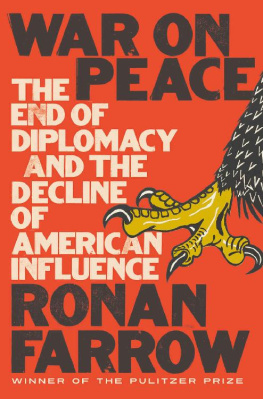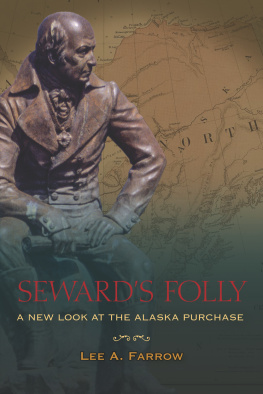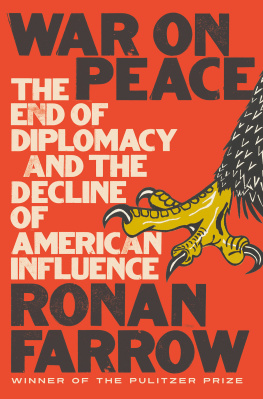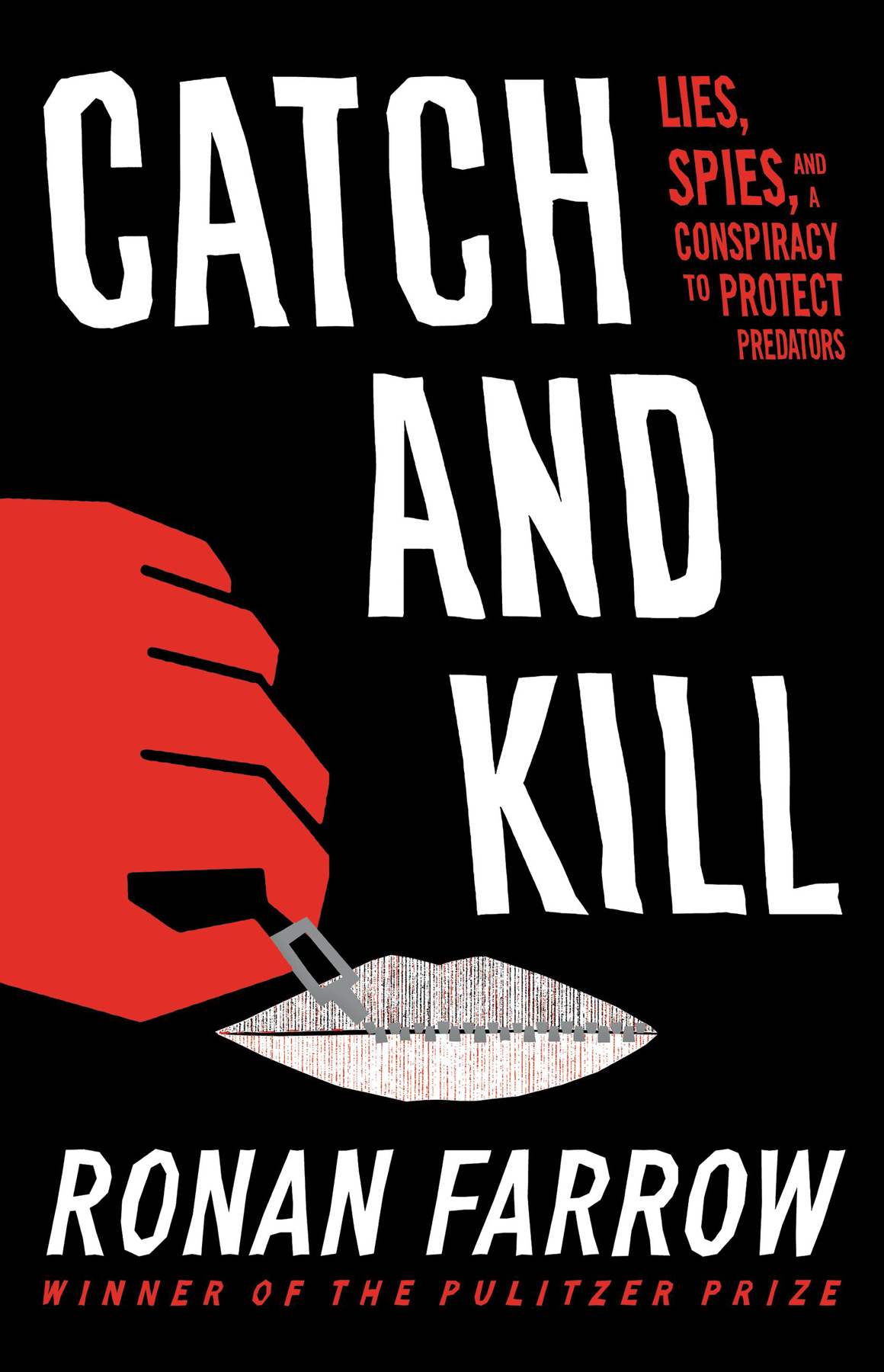Hachette Book Group supports the right to free expression and the value of copyright. The purpose of copyright is to encourage writers and artists to produce the creative works that enrich our culture.
The scanning, uploading, and distribution of this book without permission is a theft of the authors intellectual property. If you would like permission to use material from the book (other than for review purposes), please contact permissions@hbgusa.com. Thank you for your support of the authors rights.
Little, Brown and Company is a division of Hachette Book Group, Inc. The Little, Brown name and logo are trademarks of Hachette Book Group, Inc.
The publisher is not responsible for websites (or their content) that are not owned by the publisher.
The Hachette Speakers Bureau provides a wide range of authors for speaking events. To find out more, go to hachettespeakersbureau.com or call (866) 376-6591.
C atch and Kill is based on two years of reporting. It draws on interviews with more than two hundred sources, as well as hundreds of pages of contracts, emails, and texts, and dozens of hours of audio. It was subjected to the same standard of fact-checking as the New Yorker stories on which it is based.
All of the dialogue in the book is drawn directly from contemporaneous accounts and records. Because this is a story about surveillance, third parties often witnessed or surreptitiously recorded conversations, and I was sometimes able to obtain their testimonials and records. I adhered to legal and ethical standards when creating my own recordings.
Most of the sources you will meet in these pages have allowed me to use their full names. Some, however, remain unable to do so due to fear of legal reprisal or because of threats to their physical safety. In those instances, the code names used for the sources during the reporting process have been used here. I reached out to all of the key figures in Catch and Kill prior to publication, to offer them an opportunity to respond to any allegations being made about them. If they agreed to speak, the narrative reflects their responses. If they did not, a good faith effort was made to include existing public statements. For the written material quoted throughout the book, the original language, including spelling and copy errors, has been retained.
Catch and Kill takes place between late 2016 and early 2019. It contains descriptions of sexual violence that some readers may find upsetting or traumatic.
T he two men sat in a corner at Nargis Cafe, an Uzbek and Russian restaurant in Sheepshead Bay, Brooklyn. It was late 2016, and cold. The place was done up with tchotchkes from the steppes and ceramic depictions of peasant life: grandmas in babushkas, farmers with sheep.
One of the men was Russian, the other Ukrainian, but this was a distinction without a difference: both were children of the disintegrating Soviet Union. They looked to be in their mid-thirties. Roman Khaykin, the Russian, was short and thin and bald, with a quarrelsome snub nose and dark eyes. Everything else about him was pale: eyebrows barely there, face bloodless, bald scalp slick and shining. He was originally from Kislovodsk, which literally translates to sour waters. His eyes darted around the room, ever suspicious.
Igor Ostrovskiy, the Ukrainian, was taller and a little fat. He had curly hair that got unruly when he let it grow. He and his family had fled to the United States in the early nineties. Like Khaykin, he was always looking for an angle. He was also curious, meddlesome. During high school, hed suspected that several classmates were selling stolen credit card numbers, probed until he proved it, then helped law enforcement disrupt the operation.
Khaykin and Ostrovskiy spoke in accented English enlivened with native idiomsKrasavchik! Khaykin would say, a word derived from handsome but in practice serving as praise for talent or a job well done. Both men were in the business of subterfuge and surveillance. When Ostrovskiy had found himself between private investigation jobs in 2011, hed googled Russian private investigators and emailed Khaykin cold to ask for work. Khaykin had liked Ostrovskiys chutzpah and started hiring him for surveillance jobs. Then theyd argued about Khaykins methods and drifted apart.
As plates of kebab arrived, Khaykin explained how far hed been pushing the envelope since theyd last worked together. A new and shadowy client had come into the picture, an enterprise he wouldnt name that was utilizing him as a subcontractor. He was doing big business. Im into some cool shit, he said. Some dark stuff. Hed adopted some new methods, too. He could get bank records and unauthorized credit reports. He had ways of obtaining a phones geolocation data to track unsuspecting targets. He described how much the phone hijinks cost: a few thousand dollars for the usual approach to the problem, with cheaper options for gullible marks and more expensive ones for those who proved elusive. Khaykin said hed already used the tactic successfully, in a case where one family member had hired him to find another.
Ostrovskiy figured Khaykin was full of shit. But Ostrovskiy needed the work. And Khaykin, it turned out, needed more manpower to serve his mysterious new patron.
Before parting ways, Ostrovskiy asked about the phone tracking again. Isnt that illegal? he wondered.
Ehhhh, said Khaykin.
On a tiled wall nearby, a blue-and-white evil eye hung on a string, watching.
W hat do you mean its not airing tomorrow? My words drifted over the emptying newsroom on the fourth floor of 30 Rockefeller Plaza, inside the Comcast building, which had once been the GE building, which had once been the RCA building. On the other end of the line, Rich McHugh, my producer at NBC News, was talking over what sounded like the bombing of Dresden but was in fact the natural soundscape of a household with two sets of young twins. They just called, theyreno, Izzy, you have to shareJackie, please dont bite herDaddys on the phone
But its the strongest story in the series, I said. Maybe not the best TV, but the best underlying story
They say weve gotta move it. Its fakakt, he said, missing the last syllable. (McHugh had this habit of trying out Yiddish words. It never went well.)
Airing a series of back-to-back investigative spots like the one McHugh and I were about to launch required choreography. Each of the stories was long, consuming days in the networks edit rooms. Rescheduling one was a big deal. Move it to when? I asked.
On the other end of the line, there was a muffled crash and several successive shrieks of laughter. I gotta call you back, he said.
McHugh was a TV veteran who had worked at Fox and MSNBC and, for the better part of a decade, Good Morning America. He was barrel-chested, with ginger hair and a ruddy complexion, and wore a lot of gingham work shirts. He had a plainspoken, laconic quality that cut through the passive-aggressive patter of corporate bureaucracy. He looks like a farmer, the investigative unit boss who had first put us together the previous year had said. For that matter, he talks like a farmer. You two make no sense together.









